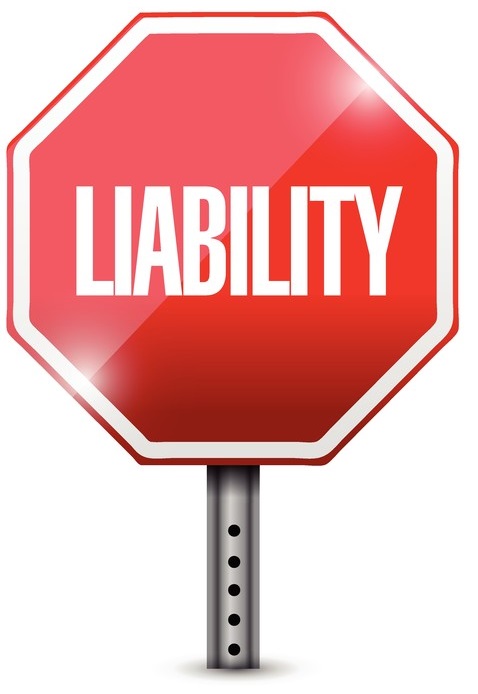By Ambi Biggs

Corporate bylaws and operating agreements often contain provisions that provide for indemnification to directors, officers and in some cases employees and agents who become parties to litigation, arbitration or investigations by reason of their service with the corporation.
By shifting responsibility for liability that may arise from actions taken in their roles as officers and directors from the individuals to the company, indemnification provisions can ease potential corporate officers’ minds and induce them to fill necessary roles within the company.
Unfortunately, many companies add standard boilerplate indemnification provisions to their bylaws or operating agreements without analyzing what the provisions cover or what the language truly means. Oftentimes, it is not until an officer or director is faced with a lawsuit arising out of her actions at work and seeks advancement or indemnification from the company that neither the officer, director, or company pays close attention to the terms of the provision. It’s at this time that the parties often discover that the language is unclear or fails to address certain situations altogether.
In Delaware, where almost a million companies are incorporated, a corporation must indemnify officers and directors who are successful on the merits or otherwise for expenses, including attorney’s fees, incurred in defending against claims brought against them as a result of actions taken in their corporation positions. 8 Del. Code. § 145(c). On the other hand, a corporation is prohibited from providing indemnification to corporate officers and directors who were not successful in the underlying action and acted in bad faith.
Delaware General Corporation Law also authorizes, but does not require, a corporation to indemnify officers, directors, employees and other agents in actions brought against them as long as they acted in good faith and in a manner they reasonably believed to be in or not opposed to the best interests of the corporation. 8 Del. Code. § 145(a) and (b). Corporate bylaws or indemnification provisions can–and should–provide specificity as to when corporations will provide permissive indemnification.
Delaware’s Limited Liability Company Act provides less direction than the General Corporation Law. It simply states: “Subject to such standards and restrictions, if any, as are set forth in its limited liability company agreement, a limited liability company may, and shall have the power to, indemnify and hold harmless any member or manager or other person from and against any and all claims and demands whatsoever.” 6 Del.C. § 18-108.
While courts have put some restrictions on LLCs’ ability to indemnify corporate members and managers–such as prohibiting LLCs from providing indemnification to individuals who have acted in bad faith–it is up to LLCs to provide clear indemnification provisions in their LLC or operating agreements, or face disputes over ambiguities in the event corporate officials later seek indemnification.
One issue that often comes up when a corporate officer is sued due to her work for a corporation is whether the company must provide her with advancement of fees to defend against the litigation. Delaware law does not provide for automatic advancement of fees, but rather the decision whether to provide advancement is subject to the business judgment rule. Therefore, if a company wants to provide–or officers and directors want to ensure they have–the right to advancement of fees, it must include such a provision in its bylaws or operating agreement, or in separate indemnification agreements.
Litigation can be prohibitively expensive and parties sometimes choose to settle claims that they otherwise would defend if they had the financial means. Therefore, it may be vitally important to officers and directors that corporate agreements and bylaws contain an advancement provision. In addition, indemnification provisions should state who will be responsible–the corporation or individual–for litigation expenses incurred in any suit that was brought to enforce advancement or indemnification rights.
Even after the underlying litigation has been resolved, corporate officials may end up in a subsequent dispute with the corporation if the company’s indemnification provisions are unclear. For instance, the parties could disagree over whether an individual acted in good faith and is entitled to indemnification. This can occur if the matter settles, and in the case of an LLC if the matter is dismissed on procedural grounds and not on the merits.
Having a more detailed indemnification provision that states whether a party is entitled to indemnification in cases of settlement or procedural dismissal could prevent the parties from incurring additional attorneys’ fees to resolve such matters after the underlying dispute has been terminated.
In addition, in the case of settlement of an action brought by the company against an officer or director, the settlement agreement should address whether the officer or director is entitled to indemnification. Otherwise, after the parties enter a settlement agreement, they still could end up litigating whether the officer or director acted in good faith regarding the matters at issue in the underlying litigation they just settled – which would defeat the main purpose of settling the dispute, which is to resolve the dispute and avoid incurring additional attorneys’ fees.
These are just a few of the matters that should be considered in drafting indemnification provisions. Instead of relying on boilerplate indemnification provisions, a corporation should consult with counsel when drafting such provisions so they can provide advice applicable to the unique situation of each company. It is advisable for both corporate and litigation counsel to review such provisions to ensure they address potential problems that could arise in the event an officer or director seeks indemnification.
About the Author: Ambi Biggs is an associate with PilieroMazza who practices in the areas of litigation and government contracts. She may be reached at abiggs@pilieromazza.com.


